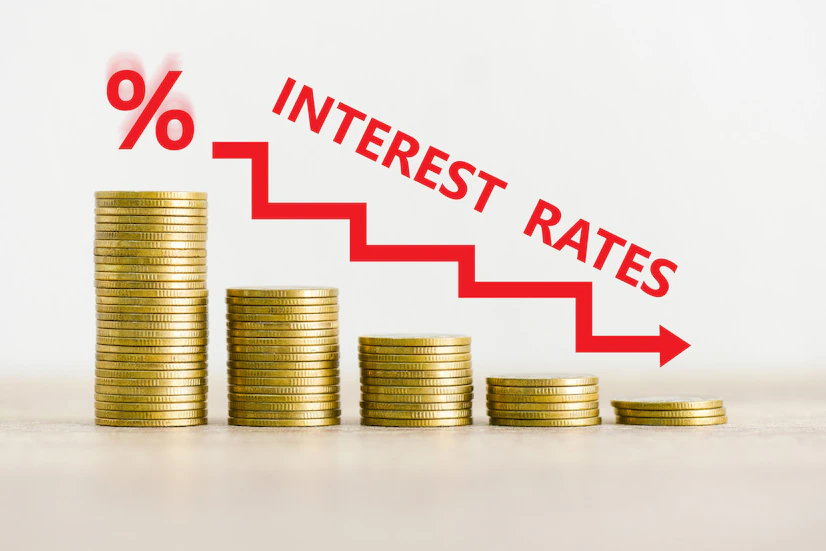In the world of student loans, understanding the current interest rates for consolidating your debt is crucial. One of the most important questions is, “What is the current interest rate for student loan consolidation?”.
Navigating the complex world of student loan consolidation can be daunting. However, in this article, we’ll break it into easy-to-understand language to help you make the best decisions about managing your student loan debt. Without any further ado, let’s begin!
What is Student Loan Consolidation?
Student loan consolidation is a way to simplify your student loan situation. It’s like putting all your student loans into one big loan basket. You don’t have to juggle multiple loans with different interest rates and payment schedules. Instead, you can merge them into a single loan.
This makes things easier to manage because you only have one loan to keep track of, one interest rate, and one monthly payment. It’s like tidying up your financial house and making student loans more convenient.
Types of Student Loan Consolidation
There are two main types of student loan consolidation that you should know. Here they are!
1. Federal Student Loan Consolidation
The government offers this type of consolidation, and is available for federal student loans. It combines your federal loans into one new loan with a fixed interest rate based on the weighted average of your existing loans.
2. Private Student Loan Refinancing
Private lenders offer this option, and it’s available for both federal and private student loans. It allows you to refinance your loans, potentially securing a lower interest rate.
However, it’s important to note that you’ll lose federal benefits like income-driven repayment plans, especially if you choose to refinance federal loans with a private lender.
The Pros and Cons
Before you decide whether to combine or refinance your student loans, you need to think about the good and not-so-good things that can happen. Here is the break down:
1. Pros of Student Loan Consolidation
- Easier Monthly Payments: When you consolidate, you have just one loan to think about, making your monthly payments simpler to handle.
- Lower Monthly Payments: Your monthly payment might go down because you can extend the time to repay the loan or get a lower interest rate.
- Remove a Cosigner: If someone co-signed your loan, consolidating can let you take full responsibility for it. It releases your cosigner from the commitment.
- Choose a New Loan Servicer: You can pick a different company to handle your loan, which can be useful if you’re unhappy with your current one.
- Escape Default: If you’ve fallen behind on a loan, federal loan consolidation can be a way to get back on track.
- Fixed Interest Rate: Consolidating can change variable interest rate loans into one new loan with a fixed interest rate. So your payment stays the same over time.
2. Cons of Student Loan Consolidation
- Possibly Paying More: If you make the repayment time longer, you’ll probably pay more in interest over the life of the loan.
- Bigger Principal Balance: When you consolidate, any interest you haven’t paid on your loans becomes part of the main loan amount, so you owe more.
- Lost Emergency Options: Federal loans offer deferment, forbearance, and a grace period, but you lose those protections when consolidating with a private loan servicer.
- Give Up Benefits: Federal loans come with extras like Public Service Loan Forgiveness, Perkins Loan Forgiveness, and income-driven payment choices, which you might lose after consolidation.
- Forgiveness Progress Reset: Consolidating can reset any progress you’ve made toward forgiveness plans like Public Service Loan Forgiveness, so it’s something to consider.
What Is the Current Interest Rate for Student Loan Consolidation?
What is the current interest rate for student loan consolidation? Here are the most recent interest rate trends, as reported by Credible, for the week of October 2023. However, these rates are updated every week, so stay updated!
The average interest rate for 10-year fixed-rate loans was 7.33%. It decreased from 7.50% the previous week and an increase from 5.68% compared to a year ago. The lowest rates for this term in 2022 were seen on January 10, at 3.44%.
Meanwhile, for 5-year variable-rate loans, the average interest rate was 6.38%. it shows a drop from 6.90% the week before but an increase from 3.19% compared to a year ago. The lowest rates for this term in 2022 were recorded during the week of July 4, at 2.51%.
How to Apply for a Direct Student Loan Consolidation?
Below are some steps to apply for a direct student loan consolidation. Follow these steps in order!
1. Start the Application
You can apply for a direct student loan consolidation online at studentaid.gov/loan-consolidation or by sending your application through U.S. mail. Most people find the online application quick, taking less than 30 minutes.
However, If you prefer the mailbox option, you can find instructions by following the link and selecting “Don’t want to use the electronic application?” And follow the next steps.
2. Consolidation Process
Once you’ve submitted your application, a loan servicer will take over the consolidation process. The servicer will be your main contact for any questions you may have regarding your consolidation application.
3. Different Services, No Problem
Your consolidation servicer may not be the one you initially chose for your application. But don’t worry; after the consolidation, you will work with the servicer you selected.
4. Keep Making Payments
It’s important to keep making payments on your loans that you want to consolidate unless they are in deferment, forbearance, or a grace period. You should continue until your consolidation servicer informs you that your new Direct Consolidation Loan has paid off these loans.
Now You Know What the Current Interest Rate Is for Student Loan Consolidation!
Now that you have a clear understanding about what is the current interest rate for student loan consolidation. You are better equipped to make informed decisions about managing your student loan debt.
Stay updated on interest rate changes and explore the best options for your situation. Always remember that seeking guidance from a financial advisor can provide valuable insights tailored to your circumstances!
Bagikan









